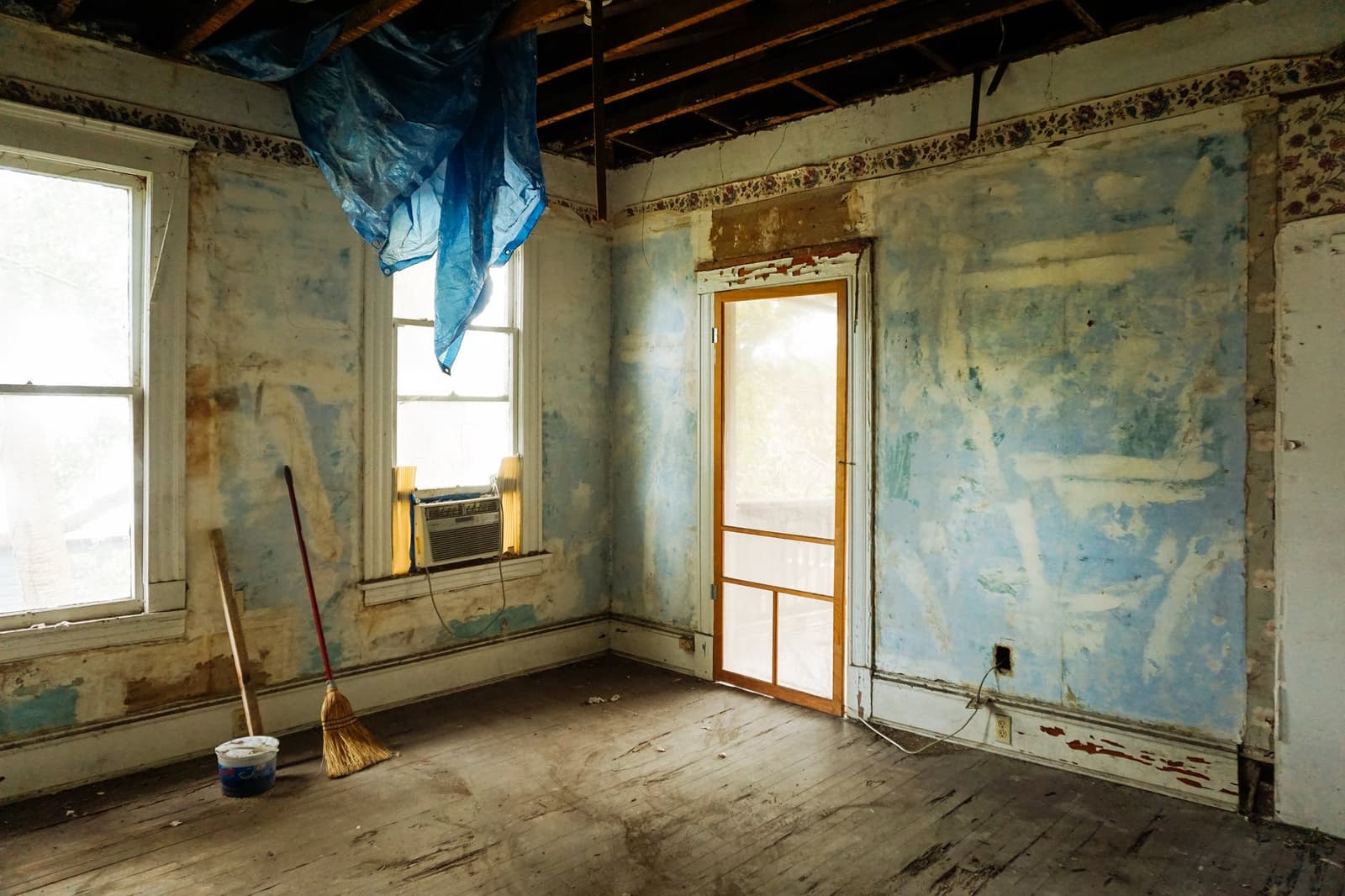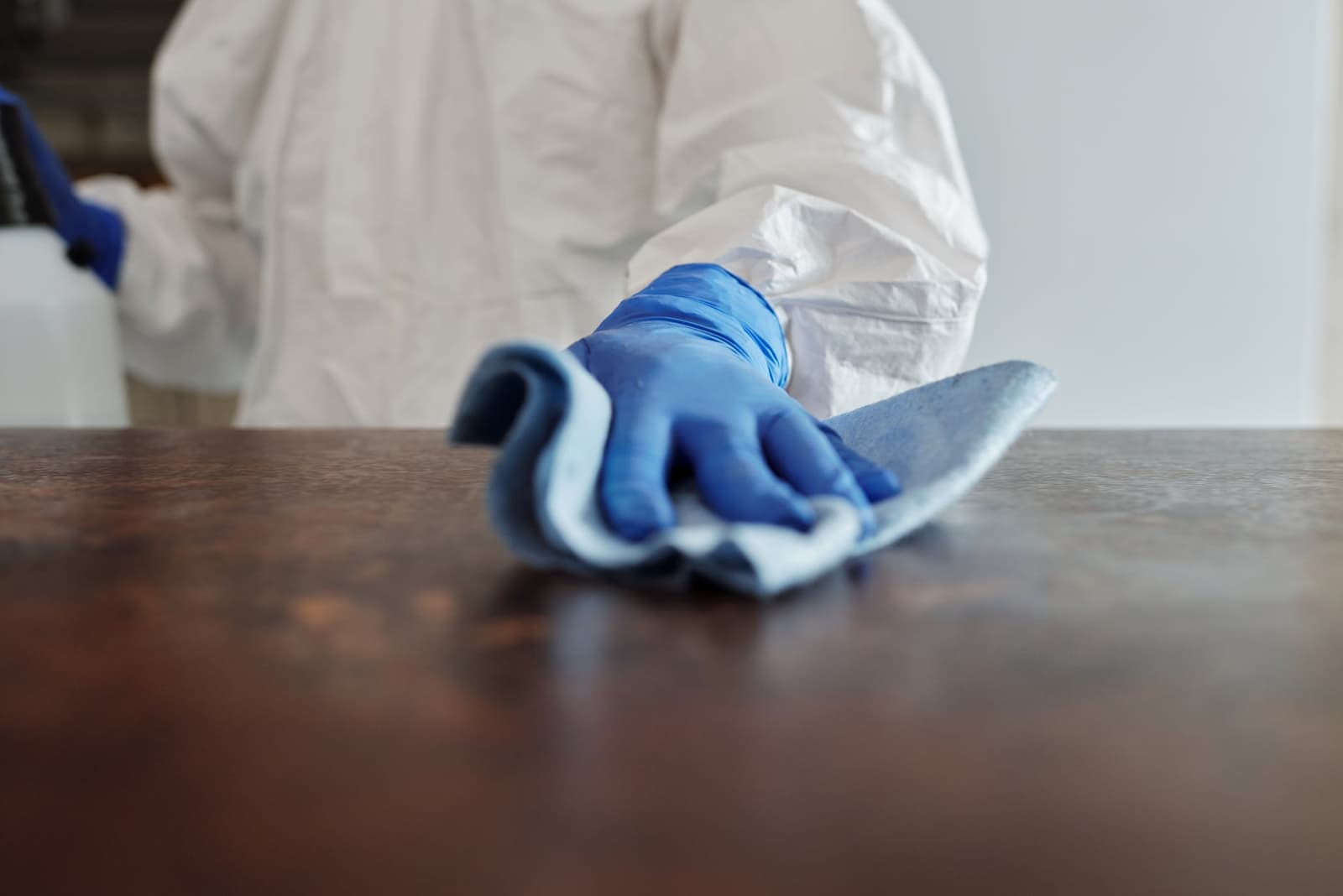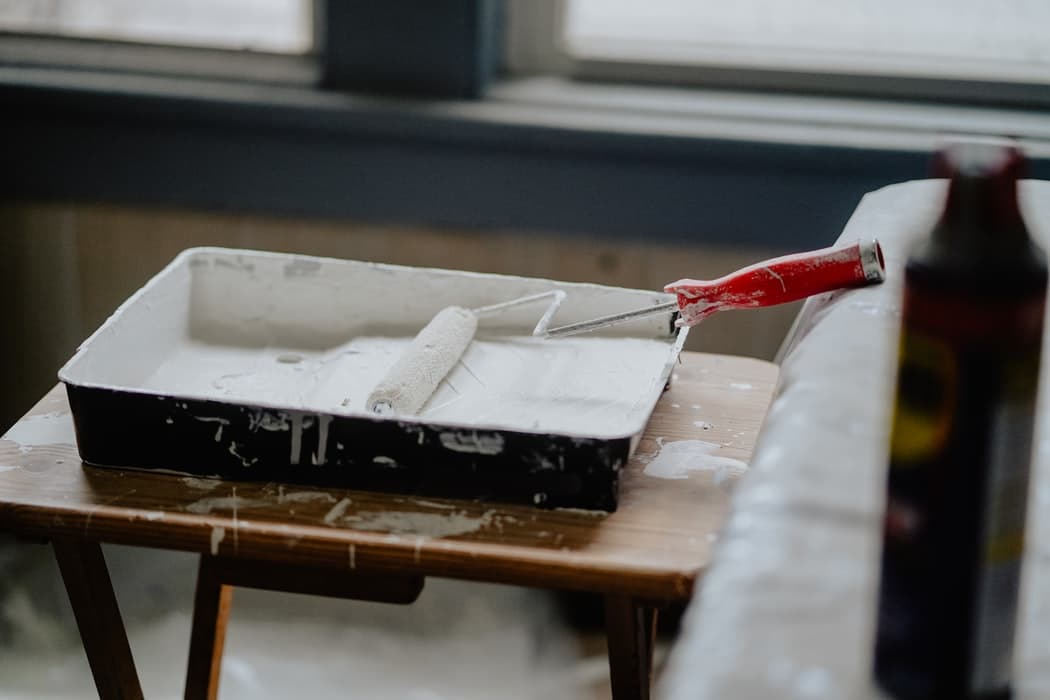8 Things to Know About Renovating After a Fire
By Amanda Harvey
Updated on November 8, 2023

Being subjected to a house fire certainly brings its share of sadness and concern. Whether we’re thinking of lost memories or the work that’s required to restore our home, as well as the expenses that’ll necessarily accompany it, this is not a time of celebration.
Faced with this situation, it’s important to handle things quickly so that your premises can be restored to a better condition as soon as possible. So here's everything you need to know about taking care of your home after a fire.
Renovating after a fire: everything you need to know
1- Get in touch with your insurance company and avoid secondary damage
Once the damage has been accounted for, you’ll need to immediately contact your insurance company to inform them about the situation and begin the claims process. To get service as quickly as possible, don't hesitate to use the company's emergency number. When you call, have the following information ready:
the type of loss that occurred
the date and sequence of events
the fire coverage you have
Following this phone call, your insurance company should dispatch one of its agents to the scene in order to ascertain the extent of the damage. We should note that your insurer will usually take care of getting in touch with a claims adjuster to assist in this task.
While it may be tempting to start work immediately, be careful not to make any permanent repairs unless you’ve been authorized to do so by your insurance agent. Otherwise, you may not be able to claim compensation for the work performed.
If you have gotten the green light and your municipal fire department allows you to enter your home, consider the necessary steps to prevent the damage from getting worse. If you delay taking action, your insurer could refuse to cover part of the work, which could have been avoided if you’d acted in due time. This is why you should find a qualified contractor to help you as soon as possible.
2- Choose a contractor specializing in disaster restoration

Be aware that the work performed must meet specific standards, which are regularly updated. This is why it’s essential to entrust your project to a contractor who specializes in disaster restoration work. In fact, this is exactly the type of professional your insurance company will recommend you to use.
In some cases, the company will advise you on this, but be aware that this choice is yours alone. Regardless of whether you take their recommendations into account or not, the key is to choose a contractor whose employees are approved by the Institute of Inspection, Cleaning and Restoration Certification (IICRC) or at least have a certification attesting to their competence to perform this type of work. Ask for a written guarantee to be sure that you are indeed dealing with qualified personnel for this kind of project.
Remember, all the tasks performed must be mentioned in the work description. Also, keep in mind that you should never agree to pay for work that you haven’t first authorized.
3- Quickly determine what is and isn’t covered
In terms of evaluating the nature of the work that’ll be carried out, you’ll need to determine everything with your insurer as well as with the contractor chosen for your project.
To guide you in this important decision-making process, ask your insurer about the scope of your insurance coverage to find out which work is and isn’t covered. In this regard, be aware that it’s recommended that you request a written confirmation of this information from your insurer.
Also in the same vein, note that you may disagree with your insurer regarding the work that’s covered. This is why it’s advisable to write down in a separate document any points in dispute. If you’re faced with this type of situation, you’ll need to go to court or initiate arbitration proceedings.
In passing, it should be noted that to the extent that the amount claimed for the damages incurred doesn’t exceed your coverage limit, the amount of your deductible may be subtracted from any compensation.
4- Pre-approve any cleaning products

In the event that you or certain family members experience health problems that involve sensitivity to mould or other various chemicals, be sure to notify the contractor who’s taking on your job. With this in mind, they can make the choice to use other products.
However, be aware that we’d suggest talking to your doctor, who can confirm this with your insurer. If additional costs apply, be aware that your insurer may refuse to cover them. You’ll then have to cover these expenses yourself, which will still give you the right to pre-approve the products used.
If you don't want to take any chances, have your contractor run some tests on a small part of any materials. Then, you can determine whether the products used are causing problems or not.
5- Start by securing, cleaning and drying the premises
The first work that’ll be carried out should aim to secure your premises. This includes the following: barricade the windows, lock the doors and protect the house adequately to deal with the elements. As well as trying to dry all surfaces and clean the house. Damaged materials and furniture will need to be removed, along with smoke residue.
Note that in a period of frost, the pipes should be emptied to avoid any plumbing breakage. As we mentioned above, it’s your job to ensure that the damage doesn’t worsen, so it’s important to take on these tasks as quickly as possible.
Particular attention should be paid to draining the premises in order to prevent mould growth. Once all traces of water are removed, a dehumidifier should be installed to dry the premises properly. We also suggest trying to lower the humidity level (to below 65% in a two day period) until the evaporation completely dries the surfaces.
If access to your home is delayed due to a security issue, have the contractor make sure that the drywall is not soaked with water or moisture. Should this be the case, this will obviously need to be replaced to prevent mould growth from polluting the air in your home.
6- Approve the work

As we’ve already pointed out in a previous article, it’s essential to stay on top of what’s happening in relation to the progress of the work. Indeed, it’s important to be aware of any problems that arise along the way (if any) so that the desired fixes are made.
In this regard, in the work approval document, be sure to mention the nature of the problem, and further, one that asks the insurer to hold a certain amount until the situation is corrected. Likewise, remember to maintain communication with the contractor who’s responsible for your project throughout its implementation.
7- Opt for a heat recovery ventilator
Since cleaning and renovating a home after a fire requires the use of chemicals, running a heat recovery ventilator at high speed in the months following the disaster is an often recommended measure for cleaning the air. In particular, this device will prevent the still contaminated air from diffusing inside the house through its components (floors, walls and so on).
8- Improve the energy efficiency of your home

Following a disaster, you may consider taking advantage of the restoration work to improve the energy efficiency of your home. You may decide to switch your windows to an energy-efficient model, buy new appliances that use less water, or improve the insulation of your home. If these ideas interest you, we should point out that there are various tax credits and subsidies to help you financially in this process
Get 3 renovation quotes for your home renovation project
RenoQuotes.com will put you in contact with 3 reliable electricians to fix your home renovation project. Fill in the form on our homepage (it only takes a few minutes), and you will receive quotes from trusted electricians.
Dial 1-844 828-1588 to speak with one of our customer service representatives
Looking for something else?
Related articles
The latest industry news, interviews, technologies, and resources.

Editorial Team
•08 Nov 2023
The bedroom is the definite haven of the home. Depending on your living arrangements, this room may be the only space offering you a little bit of peace, quiet and privacy. Of course, you’ll need it to be as organized as possible if you’re spending endless hours tucked away in your bed.

Editorial Team
•10 Feb 2024
Did an acrylic coating seem like a good idea initially, but on second thought, not so much? A lot of Quebec residents used it for new constructions before the turn of the century, yet swiftly felt its let down. Between promises of energy savings and unparalleled durability, what's an acrylic coating really about?

Editorial Team
•08 Nov 2023
If you’re considering taking on the lease of a commercial property to fulfill a business dream or open a community space, then it’s likely you’re thinking about all angles of the interior design process. Unlike a home, a commercial or industrial space has to comply with certain challenges and restrictions.

Editorial Team
•08 Nov 2023
With summer weather and sunshine knocking at your door, landscaping is most likely at the forefront of your mind. Even though your goal is to make it look nice, maintenance is rarely a cause for excitement. However, plants need their share of attention, and so does your lawn.

Editorial Team
•16 Nov 2023
The dining room is an essential area of the home where friends and loved ones often gather around a large table to enjoy a meal, a drink or a conversation together. Many families spend an ample amount of time in the dining room, and thus you’ll want your space to be as tranquil and inviting as possible with a little bit of unique design in the mix.